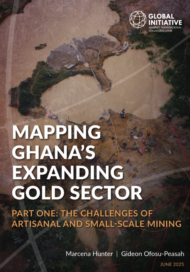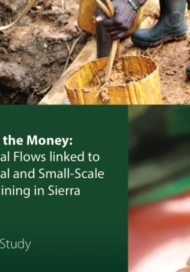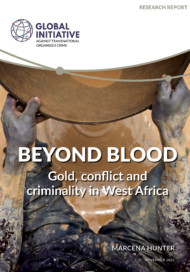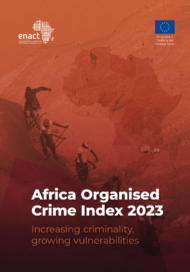Posted on 04 Jun 2025
Ghana is one of the world’s leading gold producers, and artisanal and small-scale gold mining (ASGM) plays a crucial role in the country’s economy and the livelihoods of its people. Many miners turn to gold extraction due to limited alternative livelihoods and the relatively high incomes it offers compared to agriculture or informal work. However, much of this activity remains unlicensed and informal, making it vulnerable to criminal exploitation and environmental degradation.
This report series provides an in-depth analysis of the dynamics driving illegal mining in Ghana, its regional spread, and the actors profiting from it. Based on three years of field research, remote sensing analysis, interviews and desk research, part 1 examines two key case study regions—Western and Savannah—and explores how unlicensed ASGM has grown in scale, complexity, and impact. Part 2 will explore illicit gold supply chains and financial networks in more depth.
In places like the Western region, satellite imagery shows dramatic increases in mining activity, with many operations occurring outside officially licensed zones. The environmental impacts are stark. Unregulated use of mercury in gold processing is harming water systems, while mining expansion is causing deforestation and loss of biodiversity. Remote sensing tools—including radar interferometry, flow accumulation analysis, and computer vision models—have been employed to track these developments and predict future ASGM hotspots.
In addition to mapping mining sites, the report highlights how foreign nationals, particularly from China and Burkina Faso, have introduced new technologies and machinery that are increasing gold output while contributing to environmental harm. It also explores the influence of traditional chiefs and political elites, who often benefit from or enable illicit mining operations. The report also documents how illicit financial flows and gold supply chains are increasingly transnational. Criminal groups are allegedly engaging in gold smuggling and money laundering through casinos and other businesses.
The Ghanaian government has introduced measures to formalize the ASGM sector and crack down on illegal operations, but implementation remains inconsistent. The report calls for evidence-based, adaptive, and locally informed policy responses to address the complexity of illicit gold mining in Ghana.




